How to spot scams like "Your free trial period is almost over" email scam
Phishing/ScamAlso Known As: Your Free Trial Period is Almost Over spam
Get free scan and check if your device is infected.
Remove it nowTo use full-featured product, you have to purchase a license for Combo Cleaner. Seven days free trial available. Combo Cleaner is owned and operated by RCS LT, the parent company of PCRisk.com.
What is the "Your free trial period is almost over" email scam?
Commonly, scammers/cyber criminals use emails to trick recipients into transferring money, providing sensitive information, and even installing malware onto their computers.
Typically, cyber criminals disguise their emails as urgent, important, official messages from legitimate companies, organizations or other entities. When emails are used to deliver malware, they contain a website link or attachment.
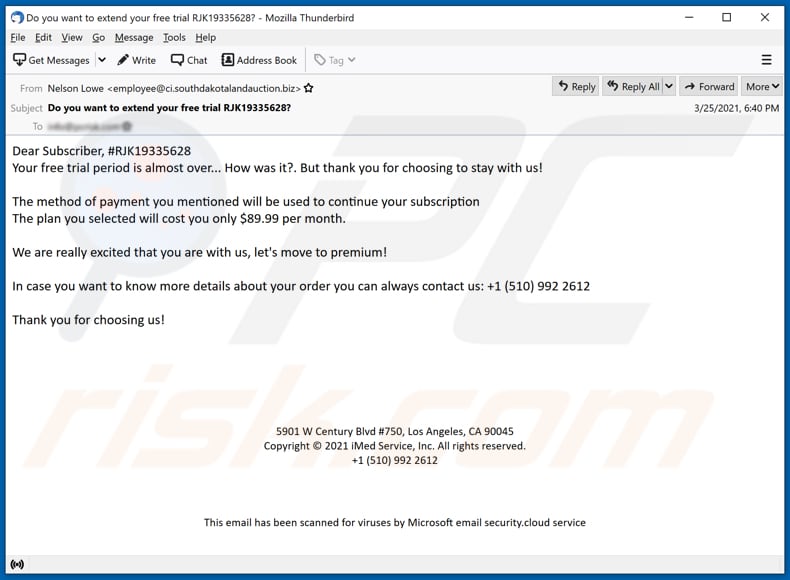
"Your free trial period is almost over" email scam in detail
There are at least eleven variants of this email scam, however, all messages are similar. Scammers behind them attempt to trick recipients into believing that the free trial period for a service is almost over, but the monthly subscription costing US$89.99 will be continued.
In this, scammers use the emails to trick recipients into believing that, unless they cancel their subscriptions, they will be billed $89.99 every month.
In order to cancel or change or cancel the subscription plan, these emails encourage recipients to call the provided number: +1 (510) 992 2612, or +1 (661) 501 2041.
Scammers behind such emails often ask to provide personal information such as name, surname, email address, credit card details, bank account number, login credentials, or other sensitive information.
Their main purpose is to extract information that can be used to steal personal accounts, identities, make unauthorized purchases, transactions, or for other purposes. Therefore, recipients who fall for these scams lose money, cannot access their accounts, and encounter other issues.
As mentioned, emails also can be used to deliver malware. In such cases, they contain a malicious attachments or a download website/link for a malicious file.
When contacted, the scammers (cybecriminals) behind this campaign ask recipients to go to a website, download a malicious Microsoft Excel document, open it and then enable editing (macros commands).
Once macros commands are enabled, the document installs BazarLoader, a backdoor/loader trojan. Cyber criminals behind this loader can use it to infect computers with additional malware. For example, ransomware, cryptominers.
Typically, malware like BazarLoader is used to infect systems with other software of this kind that steals sensitive information (e.g., banking information, credentials), mines cryptocurrency using computer hardware, encrypts data and demands ransom payments, etc.
Therefore, scammers behind this email should never be contacted. More importantly, malicious documents (or other files) downloaded from dubious websites should never be downloaded or opened.
Note that BazarLoader is not the only malicious software that cyber criminals may be delivering via this malspam campaign.
| Name | "Your free trial period is almost over" email scam |
| Threat Type | Phishing, Scam, Social Engineering, Fraud |
| Fake Claim | Subscription plan costing $89.99 per month will be continued |
| Scammer Number | +1 (510) 992 2612, +1 (661) 501 2041, +1 (720) 738 7597, +1 (816) 307 4271 |
| Disguise | Letter from Medical Reminder Service |
| Symptoms | Unauthorized online purchases, changed online account passwords, identity theft, illegal access of the computer. |
| Distribution methods | Deceptive emails, rogue online pop-up ads, search engine poisoning techniques, misspelled domains. |
| Damage | Loss of sensitive private information, monetary loss, identity theft. |
| Malware Removal (Windows) |
To eliminate possible malware infections, scan your computer with legitimate antivirus software. Our security researchers recommend using Combo Cleaner. Download Combo CleanerTo use full-featured product, you have to purchase a license for Combo Cleaner. 7 days free trial available. Combo Cleaner is owned and operated by RCS LT, the parent company of PCRisk.com. |
More about the "Your free trial period is almost over" email scam
It is also possible that scammers behind this scam campaign will ask to provide remote access to computers and then use this access to steal information, open personal files, documents, or install malware (e.g., ransomware, Trojan-type malware).
They may also offer to purchase unnecessary or fake software or use paid services. In any case, ignore this email scam (and any variants) and do not call the numbers provided.
More examples of email scams are "Facebook Lottery Email Scam", "Banca Sella Email Scam", and "We Are Interested In Buying Your Product Email Scam". As mentioned, emails can be used to deliver malicious software.
How do spam campaigns infect computers?
Systems are often infected via malicious files distributed through spam campaigns. These files can be attached and/or linked inside the emails. Infectious files can be in various formats (e.g. Microsoft Office and PDF documents, archive and executable files, JavaScript, etc.).
When these files are executed, run or otherwise opened, the infection process (i.e. malware download/installation) is triggered. For example, Microsoft Office documents (e.g. "Invoice_24077.xlsb") cause infections by executing malicious macro commands.
In Microsoft Office versions released prior to 2010, malware download/installation begins when an infectious document is opened, however, newer versions have "Protected View" mode that prevents automatic execution of macros. Instead, users are asked to enable macro commands (i.e., to enable editing/content) and hence infection processes can only be started by manually enabling macros.
How to avoid installation of malware
To avoid malware spread via spam mail, you are strongly advised against opening suspicious or irrelevant emails, especially those with any attachments or links present within them.
Additionally, use Microsoft Office versions released after 2010. Malicious programs also proliferate through untrusted download channels (e.g. unofficial and free file-hosting sites, Peer-to-Peer sharing networks and other third party downloaders), illegal software activation ("cracking") tools, and fake updaters.
Therefore, only download from official/verified sources and activate and update software with tools/functions provided by legitimate developers.
To ensure device integrity and user privacy, have a reputable anti-virus/anti-spyware suite installed and kept updated. Furthermore, use these programs to run regular system scans and to remove detected/potential threats.
If you have already opened malicious attachments, we recommend running a scan with Combo Cleaner Antivirus for Windows to automatically eliminate infiltrated malware.
Text in the email scam variant provided above:
Subject: Do you want to extend your free trial RJK19335628
Dear Subscriber, #RJK19335628
Your free trial period is almost over... How was it?. But thank you for choosing to stay with us!The method of payment you mentioned will be used to continue your subscription
The plan you selected will cost you only $89.99 per month.We are really excited that you are with us, let's move to premium!
In case you want to know more details about your order you can always contact us: +1 (510) 992 2612
Thank you for choosing us!
5901 W Century Blvd #750, Los Angeles, CA 90045
Copyright © 2021 iMed Service, Inc. All rights reserved.
+1 (510) 992 2612
This email has been scanned for viruses by Microsoft email security.cloud service
Screenshots of other scam variants:
Below is a video of a malware researcher trying to contact cyber criminals behind this email scam. Criminals eventually attempt to trick the caller into downloading and opening a malicious MS Excel document designed to inject BazarLoader malware into the system:
Additional example of "Your Free Trial Period is Almost Over" scam email:
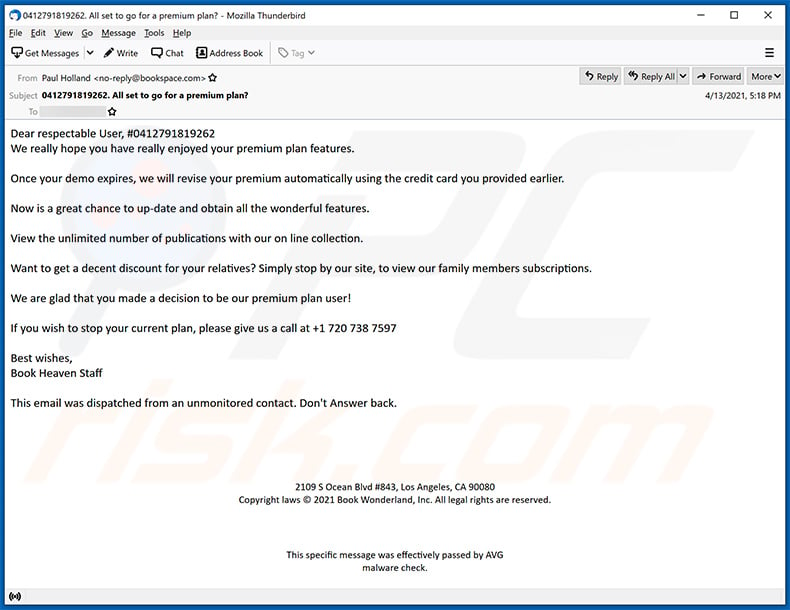
Text presented within:
Subject: 0412791819262. All set to go for a premium plan?
Dear respectable User, #0412791819262
We really hope you have really enjoyed your premium plan features.Once your demo expires, we will revise your premium automatically using the credit card you provided earlier.
Now is a great chance to up-date and obtain all the wonderful features.
View the unlimited number of publications with our on line collection.
Want to get a decent discount for your relatives? Simply stop by our site, to view our family members subscriptions.
We are glad that you made a decision to be our premium plan user!
If you wish to stop your current plan, please give us a call at +1 720 738 7597
Best wishes,
Book Heaven StaffThis email was dispatched from an unmonitored contact. Don't Answer back.
2109 S Ocean Blvd #843, Los Angeles, CA 90080
Copyright laws © 2021 Book Wonderland, Inc. All legal rights are reserved.
This specific message was effectively passed by AVG
malware check.
Screenshot of a malicious MS Excel document distributed using this email spam campaign. The document is injected with Campo Loader which, in turn, downloads and installs additional malware (such as BazarLoader, Ursnif/Gozi or TrickBot).
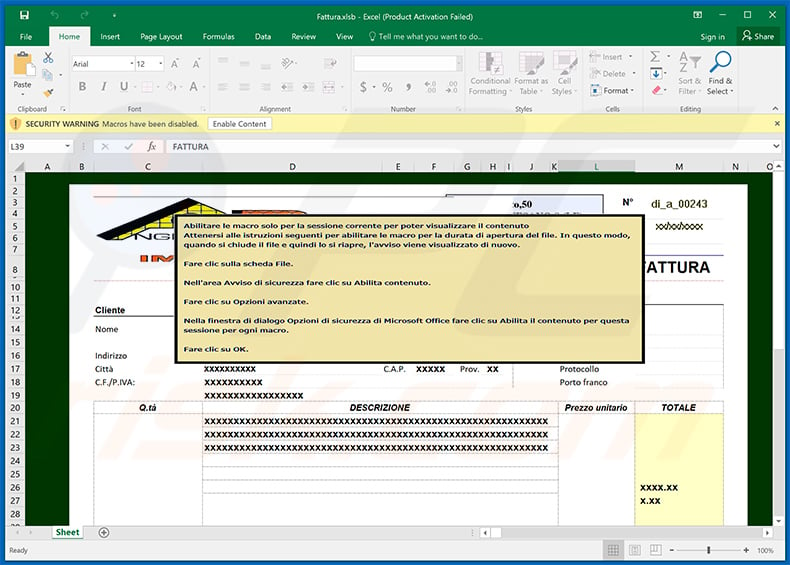
Instant automatic malware removal:
Manual threat removal might be a lengthy and complicated process that requires advanced IT skills. Combo Cleaner is a professional automatic malware removal tool that is recommended to get rid of malware. Download it by clicking the button below:
DOWNLOAD Combo CleanerBy downloading any software listed on this website you agree to our Privacy Policy and Terms of Use. To use full-featured product, you have to purchase a license for Combo Cleaner. 7 days free trial available. Combo Cleaner is owned and operated by RCS LT, the parent company of PCRisk.com.
Quick menu:
- What is Your Free Trial Period is Almost Over spam?
- Types of malicious emails.
- How to spot a malicious email?
- What to do if you fell for an email scam?
Types of malicious emails:
![]() Phishing Emails
Phishing Emails
Most commonly, cybercriminals use deceptive emails to trick Internet users into giving away their sensitive private information, for example, login information for various online services, email accounts, or online banking information.
Such attacks are called phishing. In a phishing attack, cybercriminals usually send an email message with some popular service logo (for example, Microsoft, DHL, Amazon, Netflix), create urgency (wrong shipping address, expired password, etc.), and place a link which they hope their potential victims will click on.
After clicking the link presented in such email message, victims are redirected to a fake website that looks identical or extremely similar to the original one. Victims are then asked to enter their password, credit card details, or some other information that gets stolen by cybercriminals.
![]() Emails with Malicious Attachments
Emails with Malicious Attachments
Another popular attack vector is email spam with malicious attachments that infect users' computers with malware. Malicious attachments usually carry trojans that are capable of stealing passwords, banking information, and other sensitive information.
In such attacks, cybercriminals' main goal is to trick their potential victims into opening an infected email attachment. To achieve this goal, email messages usually talk about recently received invoices, faxes, or voice messages.
If a potential victim falls for the lure and opens the attachment, their computers get infected, and cybercriminals can collect a lot of sensitive information.
While it's a more complicated method to steal personal information (spam filters and antivirus programs usually detect such attempts), if successful, cybercriminals can get a much wider array of data and can collect information for a long period of time.
![]() Sextortion Emails
Sextortion Emails
This is a type of phishing. In this case, users receive an email claiming that a cybercriminal could access the webcam of the potential victim and has a video recording of one's masturbation.
To get rid of the video, victims are asked to pay a ransom (usually using Bitcoin or another cryptocurrency). Nevertheless, all of these claims are false - users who receive such emails should ignore and delete them.
How to spot a malicious email?
While cyber criminals try to make their lure emails look trustworthy, here are some things that you should look for when trying to spot a phishing email:
- Check the sender's ("from") email address: Hover your mouse over the "from" address and check if it's legitimate. For example, if you received an email from Microsoft, be sure to check if the email address is @microsoft.com and not something suspicious like @m1crosoft.com, @microsfot.com, @account-security-noreply.com, etc.
- Check for generic greetings: If the greeting in the email is "Dear user", "Dear @youremail.com", "Dear valued customer", this should raise suspiciousness. Most commonly, companies call you by your name. Lack of this information could signal a phishing attempt.
- Check the links in the email: Hover your mouse over the link presented in the email, if the link that appears seems suspicious, don't click it. For example, if you received an email from Microsoft and the link in the email shows that it will go to firebasestorage.googleapis.com/v0... you shouldn't trust it. It's best not to click any links in the emails but to visit the company website that sent you the email in the first place.
- Don't blindly trust email attachments: Most commonly, legitimate companies will ask you to log in to their website and to view any documents there; if you received an email with an attachment, it's a good idea to scan it with an antivirus application. Infected email attachments are a common attack vector used by cybercriminals.
To minimise the risk of opening phishing and malicious emails we recommend using Combo Cleaner Antivirus for Windows.
Example of a spam email:

What to do if you fell for an email scam?
- If you clicked on a link in a phishing email and entered your password - be sure to change your password as soon as possible. Usually, cybercriminals collect stolen credentials and then sell them to other groups that use them for malicious purposes. If you change your password in a timely manner, there's a chance that criminals won't have enough time to do any damage.
- If you entered your credit card information - contact your bank as soon as possible and explain the situation. There's a good chance that you will need to cancel your compromised credit card and get a new one.
- If you see any signs of identity theft - you should immediately contact the Federal Trade Commission. This institution will collect information about your situation and create a personal recovery plan.
- If you opened a malicious attachment - your computer is probably infected, you should scan it with a reputable antivirus application. For this purpose, we recommend using Combo Cleaner Antivirus for Windows.
- Help other Internet users - report phishing emails to Anti-Phishing Working Group, FBI’s Internet Crime Complaint Center, National Fraud Information Center and U.S. Department of Justice.
Frequently Asked Questions (FAQ)
Why did I receive this email?
This is a fake letter regarding a trial period. Scammers sent this (or similar) email to all addresses in their database. As a rule, such emails are not personal.
I have provided my personal information when tricked by this email, what should I do?
If you have called the number in this email and provided your account credentials (e.g., username and password), change all passwords as soon as possible. Contact corresponding authorities if you have provided your credit card details, ID card information, or other personal information.
I have downloaded and opened a file attached to this email, is my computer infected?
It depends on the type of the opened file. Malicious MS Office documents do not infect computers until macros commands are enabled. However, executable files usually start the infection chain right after they are opened. Not all files cause computer infections in the same way.
I have read the email but did not open the attachment, is my computer infected?
No, emails cannot infect computers. Recipients infect computers only after they open links or files in emails.
Will Combo Cleaner remove malware infections that were present in email attachment?
Yes, Combo Cleaner can detect and eliminate almost all known malware. It is important to know that high-end malware can hide deep in the operating system. For this reason, it is required to run a full system scan to remove such malware.
Share:

Tomas Meskauskas
Expert security researcher, professional malware analyst
I am passionate about computer security and technology. I have an experience of over 10 years working in various companies related to computer technical issue solving and Internet security. I have been working as an author and editor for pcrisk.com since 2010. Follow me on Twitter and LinkedIn to stay informed about the latest online security threats.
PCrisk security portal is brought by a company RCS LT.
Joined forces of security researchers help educate computer users about the latest online security threats. More information about the company RCS LT.
Our malware removal guides are free. However, if you want to support us you can send us a donation.
DonatePCrisk security portal is brought by a company RCS LT.
Joined forces of security researchers help educate computer users about the latest online security threats. More information about the company RCS LT.
Our malware removal guides are free. However, if you want to support us you can send us a donation.
Donate
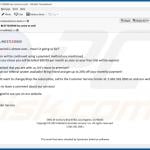
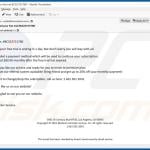
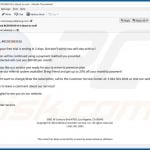
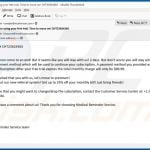
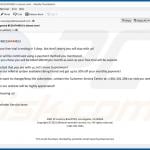
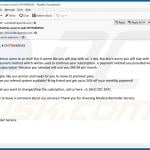
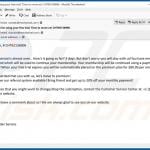
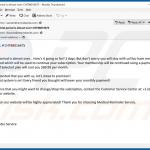
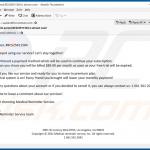
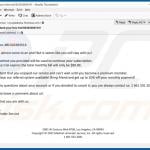
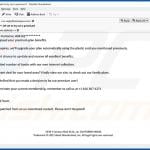
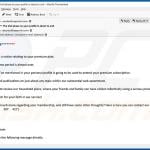
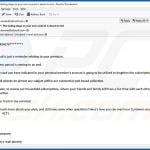
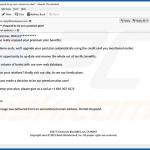
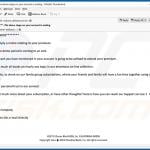
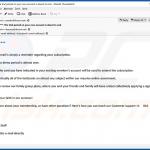
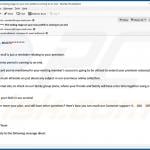
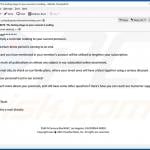
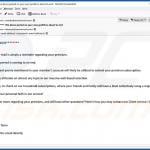
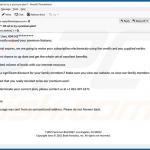
▼ Show Discussion